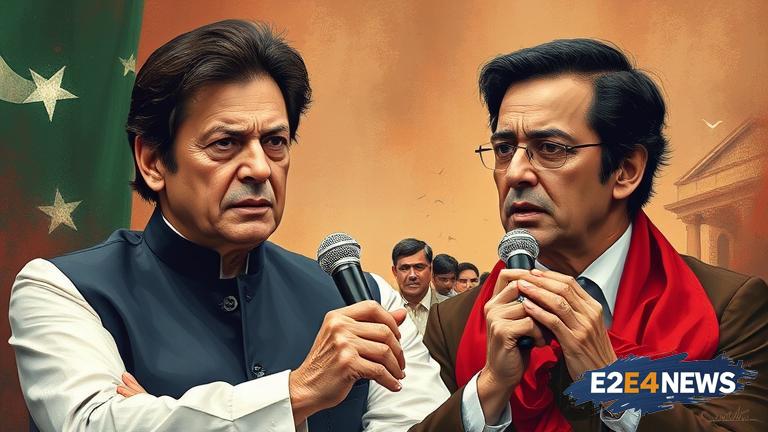Imran Khan, the former Prime Minister of Pakistan and current leader of the Pakistan Tehreek-e-Insaf (PTI) party, has refused to accept the resignation of Salman Akram Raja, a senior member of his party. This development comes amidst a period of significant political turmoil in Pakistan, with Khan’s party facing numerous challenges and controversies. Salman Akram Raja, a prominent lawyer and politician, had tendered his resignation from his position within the PTI, citing personal reasons. However, Imran Khan has declined to accept his resignation, emphasizing the importance of Raja’s role within the party. Khan’s decision is seen as a strategic move to maintain unity and stability within the PTI, which has been facing internal conflicts and external pressures. The PTI has been at the forefront of Pakistani politics, with Imran Khan leading the party since its inception. Despite facing numerous challenges, including corruption allegations and opposition from other political parties, the PTI has maintained a significant following in Pakistan. Imran Khan’s refusal to accept Salman Akram Raja’s resignation is a testament to his commitment to his party and its ideology. The move is also seen as an attempt to bolster the party’s image and reassure its supporters of its stability and cohesion. The political landscape in Pakistan is complex and dynamic, with multiple parties vying for power and influence. The PTI, under Imran Khan’s leadership, has been a major player in this landscape, with its populist and anti-corruption agenda resonating with many Pakistanis. However, the party has also faced criticism and opposition from other parties, including the Pakistan Muslim League-Nawaz (PML-N) and the Pakistan Peoples Party (PPP). The current political situation in Pakistan is marked by uncertainty and instability, with the government facing numerous challenges, including economic woes and security concerns. In this context, Imran Khan’s decision to reject Salman Akram Raja’s resignation is a significant development, highlighting the ongoing power struggles and alliances within Pakistani politics. The PTI, under Khan’s leadership, is likely to continue playing a major role in shaping the country’s political discourse and direction. As the party navigates the complex and often treacherous landscape of Pakistani politics, Imran Khan’s refusal to accept Raja’s resignation serves as a reminder of his commitment to his party and its ideals. The move is also likely to have implications for the broader political landscape in Pakistan, with potential repercussions for the government, opposition parties, and the country as a whole. In the coming days and weeks, it will be important to monitor developments within the PTI and the wider political landscape in Pakistan, as the country continues to grapple with its numerous challenges and uncertainties. The PTI, under Imran Khan’s leadership, is poised to remain a major player in Pakistani politics, with its ideology and agenda continuing to shape the country’s discourse and direction. As the party moves forward, it will be important to consider the implications of Imran Khan’s decision to reject Salman Akram Raja’s resignation, both for the PTI and the broader political landscape in Pakistan. The country’s political future remains uncertain, with numerous challenges and opportunities on the horizon. However, one thing is clear: Imran Khan and the PTI will continue to play a major role in shaping Pakistan’s political discourse and direction, with the party’s ideology and agenda remaining a key factor in the country’s ongoing political struggles. The rejection of Salman Akram Raja’s resignation is just one example of the complex and often dramatic developments that are characteristic of Pakistani politics. As the country navigates its numerous challenges and uncertainties, it will be important to remain vigilant and informed, with a close eye on the latest developments and trends. The PTI, under Imran Khan’s leadership, is likely to remain a major player in Pakistani politics, with its populist and anti-corruption agenda continuing to resonate with many Pakistanis. However, the party will also face numerous challenges and opposition, both from within and outside its ranks. In this context, Imran Khan’s decision to reject Salman Akram Raja’s resignation serves as a reminder of his commitment to his party and its ideals, as well as his determination to navigate the complex and often treacherous landscape of Pakistani politics.
